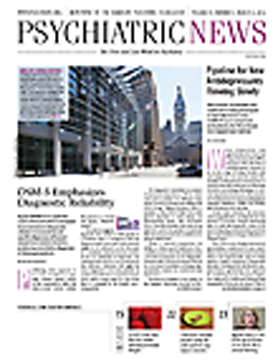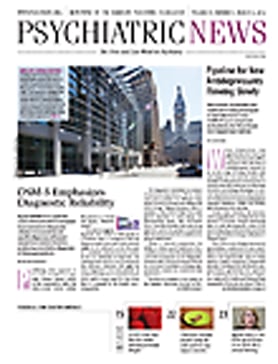Pfizer, Medivation End Development of Dimebon
Medivation and Pfizer announced in January the results from the CONCERT trial, a phase 3 trial that evaluated Dimebon (dimebolin, also known as latrepirdine) when added to ongoing treatment with donepezil tablets in patients with mild-to-moderate Alzheimer’s disease. Dimebon, which has been sold over the counter as an antihistamine in Russia since 1983, did not achieve statistically significant results for either of the two co-primary endpoints, the Alzheimer’s Disease Assessment Scale—cognitive subscale (ADAS-cog) or the Alzheimer’s Disease Cooperative Study–Activities of Daily Living (ADCS-ADL), which measures self-care and daily function.
The phase 3 CONCERT trial was a 12-month global randomized, double-blind, placebo-controlled study that enrolled 1,003 patients with Alzheimer’s disease. Patients on a stable dose of donepezil for at least four months were randomized to one of three treatment groups: dimebon 20 mg three times a day, dimebon 5 mg three times a day, or placebo.
Dimebon was generally well tolerated in the study. A full analysis of the results from CONCERT will be submitted for presentation at a scientific congress.
Medivation and Pfizer will discontinue development of dimebon for all indications and will terminate the ongoing open-label extension study in Alzheimer’s disease.
Regnite Approved in Japan to Treat Restless Legs Syndrome
Astellas Pharma and XenoPort announced January 17 that Regnite (gabapentin enacarbil) has received marketing approval in Japan for treatment of moderate to severe primary RLS. The New Drug Application filing for Regnite included data supporting safety and efficacy from the phase 2 study in RLS patients and a long-term safety study conducted by Astellas in Japan, as well as the RLS clinical program conducted by XenoPort in the United States and supporting pharmacokinetic studies conducted by XenoPort in Japan. Each of the efficacy studies showed that treatment with Regnite was associated with improvement in the International Restless Legs Syndrome Rating Scale score compared with placebo. Improvement over placebo was also observed on the investigator-rated Clinical Global Impression of Improvement Scale. The most commonly reported adverse events for Regnite were somnolence and dizziness, which were generally transient and mild to moderate in severity. Xenoport said that Regnite is rapidly converted into gabapentin once absorbed from the gastrointestinal tract and provides dose-proportional and extended exposure of gabapentin.
Otsuka Files for Approval of Rotigotine Patch
Otsuka Pharmaceutical announced in January that the company submitted a manufacturing and marketing approval application in December 2011 in Japan for the dopamine agonist transdermal patch Rotigotine Patch (rotigotine), which has been developed as a treatment for Parkinson’s disease and restless legs syndrome (RLS).
Rotigotine Patch provides a continuous release of the drug and maintains a clinically effective blood drug concentration for 24 hours to achieve stable effects. It was developed to alleviate symptoms that can occur during the day or night and to provide patients with a more convenient form of drug treatment.
Neupro (rotigotine) is being marketed by the global pharmaceutical company UCB as a treatment for Parkinson’s disease or RLS in many countries. Otsuka Pharmaceutical acquired the exclusive rights for developing and marketing Rotigotine Patch in Japan in 2002.
AstraZeneca to Develop Targacept’s AZD1446 to Treat Alzheimer’s Disease
Targacept, a biopharmaceutical company developing novel neuronal nicotinic receptor agents, announced in January that AstraZeneca plans to advance the development of Targacept’s product candidate AZD1446 as a treatment for Alzheimer’s disease.
AZD1446 is a selective modulator of the alpha-4-beta-2 neuronal nicotinic receptor that arose out of a research collaboration conducted by Targacept and AstraZeneca. Under terms of a 2005 collaborative research and license agreement, AstraZeneca is responsible for conducting and funding the development and potential commercialization of AZD1446. The next clinical trial of AZD1446 is expected to be a phase 2 study as an adjunct treatment to donepezil in patients with mild to moderate Alzheimer’s disease.
Vivus Removes Qnexa Contraindication for Women of Childbearing Potential
Vivus announced in January that the company has been asked to remove the contraindication for women of childbearing potential contained in the proposed label for Qnexa (phentermine and topiramate), following recent discussions with Food and Drug Administration (FDA) officials. Qnexa, a weight-loss medication, would remain contraindicated for women who are pregnant. Included with the resubmission of the Qnexa New Drug Application was a proposed Risk Evaluation and Mitigation Strategy (REMS). The company is revising its proposed REMS based on this change in the contraindication and plans to discuss the details of the Qnexa REMS during a meeting of the FDA’s Endocrinologic and Metabolic Drugs Advisory Committee, which was scheduled for February 22. The target date for the FDA to complete its review of the Qnexa NDA is April 17.
“The company’s disclosure of this regulatory update should not be interpreted to mean that the potential for FDA approval of Qnexa has improved or that, if approved, the final Qnexa label would not include contraindications or warnings for specific populations, including women of childbearing potential,” cautioned Peter Tam, president of Vivus.
Qnexa is an investigational drug being developed to address weight loss, type-2 diabetes, and obstructive sleep apnea. Qnexa is a once-a-day, proprietary, oral, controlled-release formulation of low-dose phentermine and topiramate. In phase 2 and 3 clinical data, patients taking Qnexa have demonstrated statistically significant weight loss, glycemic control, and improvement in cardiovascular risk factors when used in combination with a diet and lifestyle modification program.


